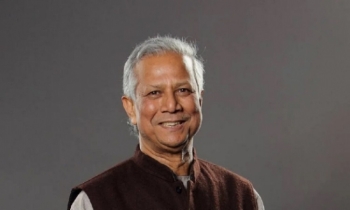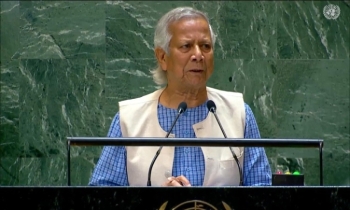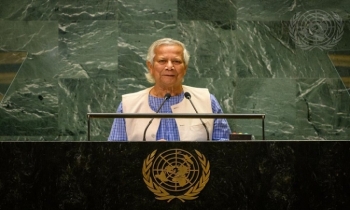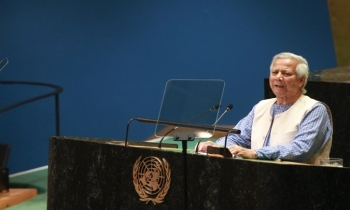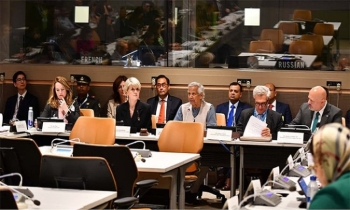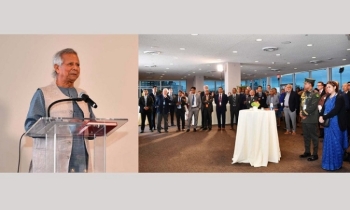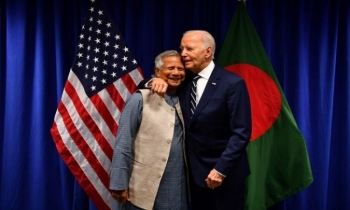Justice Shahabuddin Ahmed: A man of dignity, integrity and impartiality!
BI Report || BusinessInsider
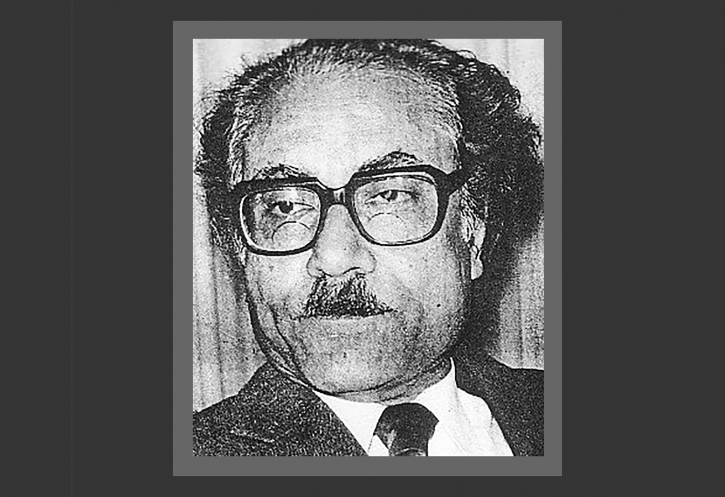
Justice Shahabuddin Ahmed. Photo: File
In Bangladesh’s history, Justice Shahabuddin Ahmed’s name will be remembered with great honour, reverence and appreciation.
In many decades to come, his life will remain a lighthouse for the society for beaconing simplicity, integrity and asceticism.
Justice Shahabuddin Ahmed’s entry into the political arena was quite dramatic. His emergence in politics was abrupt mainly due to the mass uprising against the dictatorship of erstwhile president Lt General Hussain Muhammad Ershad, in 1990.
Shahabuddin was a renowned lawyer and the 6th chief justice of Bangladesh and was acting president once and subsequently elected president for 1996-2001 period.
He was the head of the caretaker government (as acting president) from December 6, 1990 to October 9, 1991 and later served as president from July 23, 1996, to November 14, 2001. But it looked like an intense drama for him from being justice to the president of the country.
Justice Shahabuddin Ahmed appeared on the political stage shortly after the fall of the late HM Ershad — a dictator — in a mass uprising in 1990.
The anti-authoritarian movement of the nineties started on March 24, 1982, when the then Chief of Army Staff Lt General HM Ershad, illegally seized power of the state through a military coup.
After seizing power, Ershad imposed martial law and began persecuting political leaders and violently suppressed the movement for democracy. He largely stopped all kinds of democratic practices and undermined democratic institutions in the country.
At that time, the constituents were largely deprived of their freedom of speech. It is then Justice Shahabuddin amended a number of draconian laws, which revived freedom of the press and freedom of expression in the country.
The movement for democracy pioneered by students and political parties intensified on October 10, 1990, when Jihad, a student of Ullapara in Sirajganj, was shot dead by police. Then ‘All-Party Student Unity’ was formed in the presence of the leaders of 24 student organisations.
Before the formation of this all-party student unity, several parties including Bangladesh Jatiyatabadi Chhatra Dal and Bangladesh Chhatra League, were active in the anti-Ershad movement separately. All the forces of the student body came together in one place by forming an All-party Student Unity.
As the mass uprising intensified and seemed so powerful that the country looked like there was no government, Ershad announced his resignation on December 4 and was forced to formally resign on December 6. Thus, the student movement against Ershad came to an end on December 6, 1990.
But, to whom will Ershad relinquish power? The drama begins with this.
When Ershad’s Vice President Barrister Moudud Ahmed resigned from the post on December 5, 1990, Justice Shahabuddin Ahmed became vice president.
After the ouster of Ershad, the two main parties started to argue on who should be appointed as the president of Bangladesh and the head of the interim government until the national elections are held.
At one point, both the parties reached an agreement when Justice Shahabuddin Ahmed’s name came up; and accepted him as the interim president.
Later in the fifth general elections, Khaleda Zia-led BNP won 140 seats out of 300 in the much-hyped polls where total votes cast were 55.4%.
Then, after the 5th national general elections of Bangladesh on February 27, 1991, he rejoined his professional career as chief justice of the Supreme Court.
In the 7th National Assembly elections, the Awami League won 146 seats out of 300 and formed a coalition government.
On July 23, 1996, the Awami League nominated Justice Shahabuddin Ahmed as the country’s president. He was then elected president of Bangladesh without any contest. He retired from the presidency on November 14, 2001.
He won the love and respect of people of all walks of life in Bangladesh with his pinnacle honesty, sincerity, asceticism and wisdom.
He used to live nearly a recluse and exceptionally simple life after retirement. His presence was no longer seen in any political event or in the media.
We pay our towering tribute to this man, Justice Shahabuddin Ahmed!


